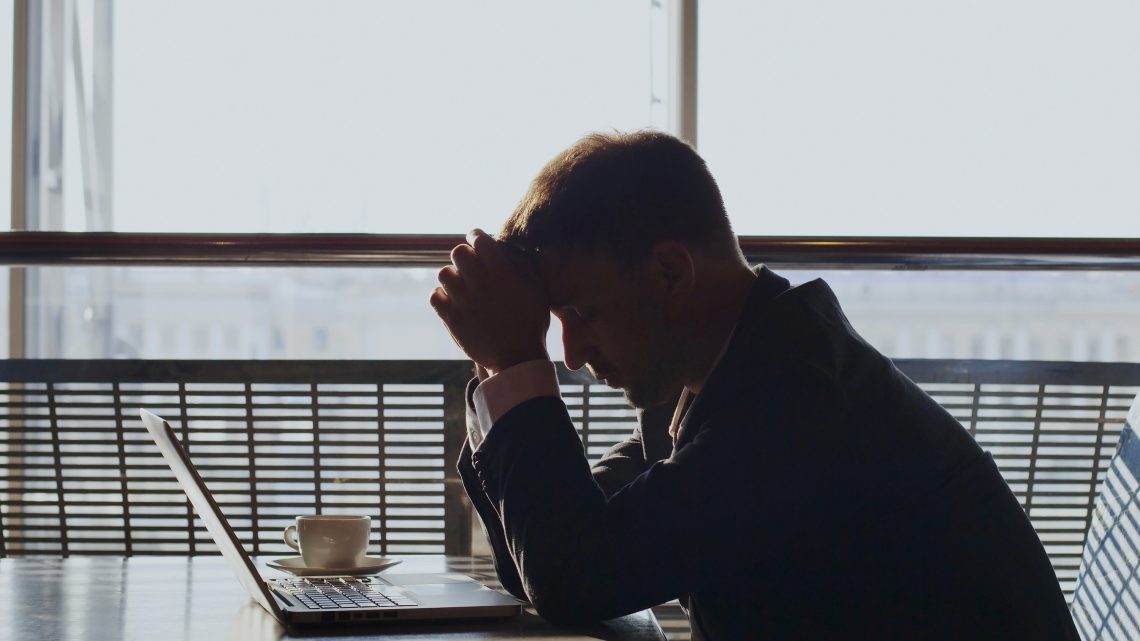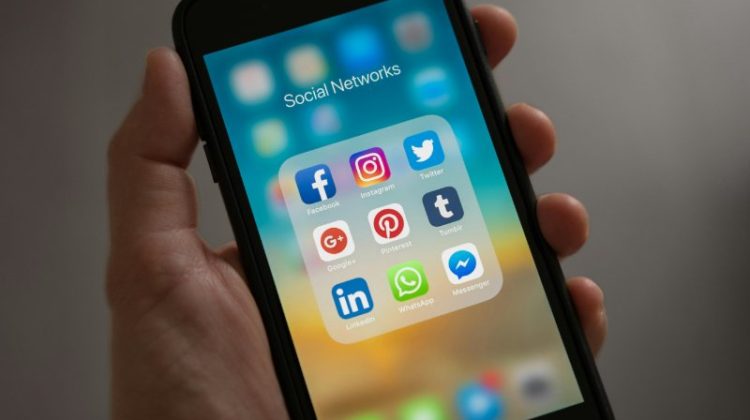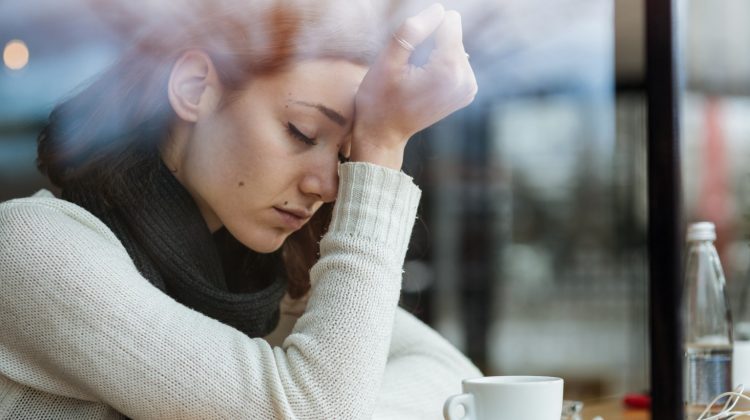By now, most of us are beginning to feel the effects of prolonged isolation, social distancing practices, and certainly the disruption of our daily lives. While stress is certainly nothing new, the way the coronavirus pandemic has affected our world certainly is. We are experiencing the physical distancing of our loved ones, our friends and family members, our coworkers, and for too many, the vital human connectedness we so desperately need.
In so many ways, what we are experiencing is unprecedented. While pandemics and widespread outbreaks of various diseases have happened before, the scale of the public health response, and the context in which the COVID-19 pandemic has occurred – both historically and politically – is unique. We are living in times when social media is blasting into our lives a tidal wave of information, both good and bad, true and false. We are being bombarded with reports, opinions, and statistics coming from all sides that are perhaps well-meaning but not so accurate at all. All of these things can certainly contribute to already mounting levels of COVID-19 related stress.
Also because of social distancing, many people no longer have access to certain health care services. They cannot visit their dentist, for example, or get an eye exam. They must wear a mask to go out in public places, or if they live in places like nursing homes or elder care residences, cannot go out at all, nor can they have visitors come in to see them. Coping and managing fear and stress have become the order of the day.
Stress Defined
While stress can be defined in several ways, it is basically the body’s reaction to change. Hans Selye coined the term in 1936 when he demonstrated that persistent stress led to various disease states. The term underwent some change itself until he later redefined the word as “a condition or feeling experienced when a person perceives that demands exceed the personal and social resources the individual is able to mobilize.”
That means that the “stress overload point” will occur differently for each person. For that reason, stress can difficult to define, or even recognize. Stress affects everyone on some level. It becomes problematic stress when it is long-term and disrupts our ability to function normally.
How Anxiety Differs from Stress
Anxiety is the mind and body’s reaction to stress. It’s that sense of unease, distress, or hand-wringing dread we feel. Chronic anxiety can be debilitating as irrational thoughts and fears can hijack our brains and lead to all sorts of awful effects, including depression.
When you are anxious, you may notice feeling excessively worried about contamination, preoccupation with symptoms about sickness, excessively checking the news, washing your hands, or shopping online for sanitizer or masks. Your thoughts may feel like they are “running wild” and racing.
How Anxiety, Stress, and Depression are Linked
It’s not at all uncommon for someone struggling with anxiety to also suffer with depression. While most of us have experienced grief, loss, illness, or other stressors at some time in our lives that have led to such feelings, what we are experiencing now in the midst of the COVID-19 pandemic is different. The worry, loss of control, frustration, and certainly the isolation we are experiencing is unhealthy at best, devastating at worst.
What began as social distancing has turned to the isolation that for too many is becoming extended and extreme. Not only are lives and routines being disrupted but mental and physical wellbeing are being impacted on a global scale. For those already battling depression, this is becoming a serious problem.
Everyone Reacts Differently to Stressful Situations
While the stress related to the pandemic has affected all of us in some way, people tend to deal with stress in very different ways. This in itself can be stressful, simply because it is one more thing we cannot control or predict in an already unpredictable situation. In other words, people will have a whole variety of reactions to the stress they are experiencing.
Due to the constant barrage of media coverage on the coronavirus disease, managing stress becomes more and more of a challenge. Not only must we very carefully filter what the news channels send out, but social media is full of misinformation, scams, sales pitches, half-truths, and outright lies when it comes to understanding what is and is not true concerning COVID-19.
Potential Symptoms Linked to Stress, Anxiety, and Depression
While most associate stress with feeling anxious or fearful, stress can manifest itself in other ways.
Emotional symptoms could include feeling:
- Restlessness
- Panic or a sense of dread
- Irritable or on edge
- Extreme fear or worry
- Feeling sad, weepy, emotional
Physical symptoms might include the following:
- Muscle tension or aches
- Feeling sluggish
- Sleep disturbances
- Appetite changes
Cognitive symptoms might include:
- Mood changes
- Difficulty with memory or concentration
- Confusion, forgetfulness
Behavioral responses will differ from person to person, but some might notice:
- Withdrawal
- Aggression or anger/lashing out
- Substance use/abuse
Taking Care of Yourself and Your Community
Using Technology During the Current Stress Epidemic
First and foremost, beware of which sources you use.
- If you are looking for updates on the latest stats, rules regarding social distancing, etc., avoid news stations, blogposts, emails, etc. and stick to credible sources, such as health or government websites for information.
- Slow down and take your time before you react to what you read or hear. Double check your source for its accuracy.
- If you are receiving misinformation from family, friends, or colleagues, you might consider respectfully sending along correct information with the resource you found the correct info or statistic on so they will have it.
- If you find yourself being repeatedly misled or upset, consider taking a break altogether for a time.
Ways to Protect Your Mental Health During This Time
- Find ways to stay connected with others
- Help and support others
- Share your frustrations, worries, and concerns with others
- Take care of your physical health
- Limit your exposure to negative media
- Stay abreast of the facts from credible sources
- Establish a daily routine
- Keep your mind active on things you enjoy
- Set goals
- Take time to get outside when you can and enjoy the fresh air
What Resources are Available?
This website on Emotional Wellbeing During the COVID-19 Outbreak lists some excellent resources you may find helpful.
Loneliness is a real health issue and older adults are especially vulnerable when it comes to this problem. Social isolation in the midst of the COVID-19 crisis has certainly increased this problem. It’s more important than ever that we stay in touch with family members who are alone at this time.
The National Institute of Mental Health (NIMH) has several resources listed on their website that may help manage stress.
- Develop a plan to set aside time to safely connect
- Make a list of organizations that can help. This might include:
- Substance abuse help
- Mental health services
- Services for the elderly
- Resources for emotional support and wellbeing
- In California
- Mental Health America
- CDC
- American Psychological Association (APA)
- For Veterans
- (National Center for PTSD)
When Should I Seek Help?
If you are struggling and find that the situation is becoming overwhelming, don’t wait. Talk to your healthcare provider sooner than later. Remember that long-term stress can be harmful and can lead to other health problems.
- If you feel your frustration or anger about the situation is getting out of your control, call someone for help right away.
- If you find yourself drinking morethan you were before
- If you are feeling extremely depressed or suicidal, don’t wait to call and talk to someone
“The tragedy of COVID is it exacerbates this already prevalent mental health and addiction crisis.”
References
AARP. (2020). How to fight the social isolation of coronavirus. https://www.aarp.org/health/conditions-treatments/info-2020/coronavirus-social-isolation-loneliness.html
ADAA. (2018). Anxiety and depression: Facts and statistics. https://adaa.org/about-adaa/press-room/facts-statistics
AIS. (2019). What is stress? https://www.stress.org/what-is-stress
Alarcon, R.D. (2020). The route from social isolation to loneliness. https://www.psychiatrictimes.com/coronavirus/mental-health-pandemic-state-route-social-isolation-loneliness
Brooks, M. (2020). COVID-19: Striking rates of anxiety, depression in healthcare workers. https://www.medscape.com/viewarticle/927581
CDC. (2020). Provisional death counts for coronavirus disease (COVID-19). https://www.cdc.gov/nchs/nvss/vsrr/COVID19/index.htm
Galea, S. (2020). Mental health in a time of pandemic. https://www.psychologytoday.com/us/blog/talking-about-health/202003/mental-health-in-time-pandemic
London, R.T. (2020). Is COVID-19 leading to a mental illness pandemic? https://www.medscape.com/viewarticle/927849
Perez, P.R. (2020). COVID-related stress: Thee effects of social isolation. https://safer-america.com/covid-related-stress-the-effects-of-social-isolation/
Perez, P.E. (2020). Social Distancing explained. https://safer-america.com/social-distancing/
Polakovic, G. (2020). To manage COVID-19 stress, develop healthy new habits and consume news in moderation. https://news.usc.edu/167512/covid-19-stress-coping-healthy-habits-usc-social-science-experts/
Schwalbe, N. (2020). We could be vastly overestimating the death rate for COVID-19. Here’s why. https://www.weforum.org/agenda/2020/04/we-could-be-vastly-overestimating-the-death-rate-for-covid-19-heres-why/
Shelton, C. (2020). Feeling the pressures of the pandemic: Suicide hotlines see 800% spike in calls. https://fox17.com/news/local/feeling-the-pressures-of-the-pandemic-suicide-hotlines-see-800-percent-spike-in-calls
Simon, C. (2020). Online forum aims to teach how to deal with pandemic stress. https://news.harvard.edu/gazette/story/2020/03/chan-school-session-breaks-down-ways-to-ease-stress/
Solomon, A. (2020). For those of us with depression, coronavirus is a double crisis. https://www.theguardian.com/commentisfree/2020/apr/13/depression-coronavirus-double-crisis-suffering-mood
Tan, E. (2020). Coronavirus and older American: What families should discuss. https://blog.aarp.org/thinking-policy/coronavirus-and-older-americans-what-families-should-discuss
URMC. (2020). Understanding your response to stress. https://www.urmc.rochester.edu/encyclopedia/content.aspx?contenttypeid=42&contentid=RespondingtoStressMRA
World Economic Forum. (2020). Lockdown is the world’s biggest psychological experiment – and we will pay the price. https://www.weforum.org/agenda/2020/04/this-is-the-psychological-side-of-the-covid-19-pandemic-that-were-ignoring/





No Comment